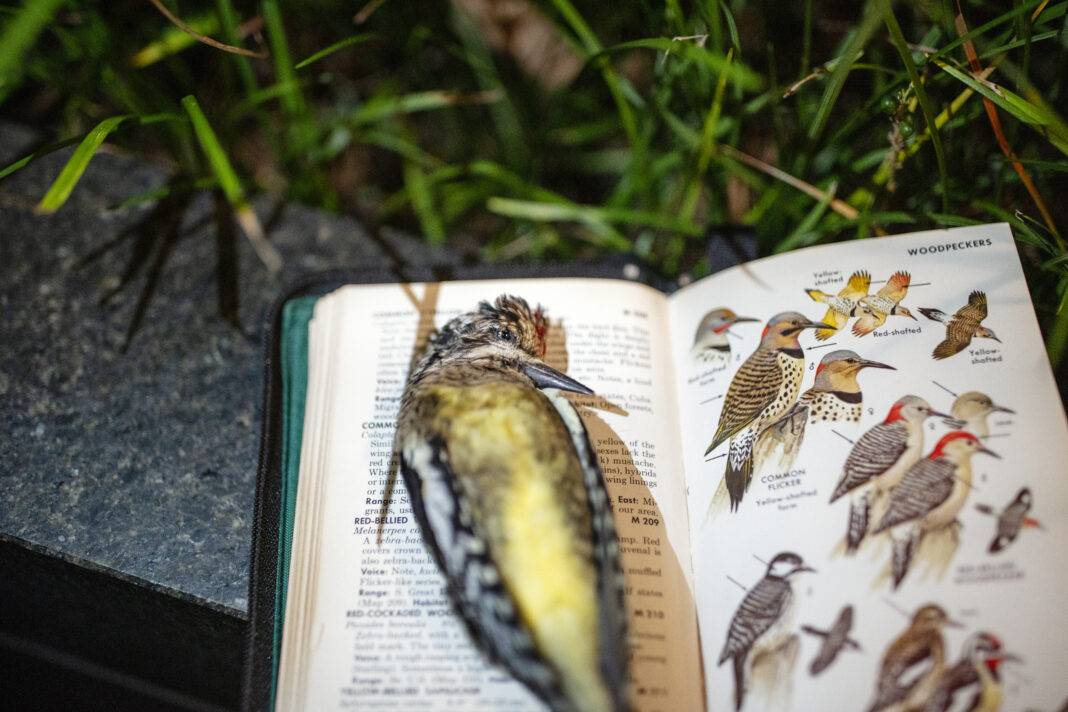Lights Out Philly urges businesses (and homes) to go dark at night.
Up to one billion birds die from collisions with glass every year — an estimated 1,000 of them in just a four-block area of downtown Philadelphia, Audubon Mid-Atlantic reports. In response, Bird Safe Philly — a nonprofit partnership among many organizations, including Audubon Society chapters and the Delaware Society Ornithological Club — is promoting a Lights Out Philly initiative during the fall and spring bird migration seasons, when feathered friends are especially on the move.
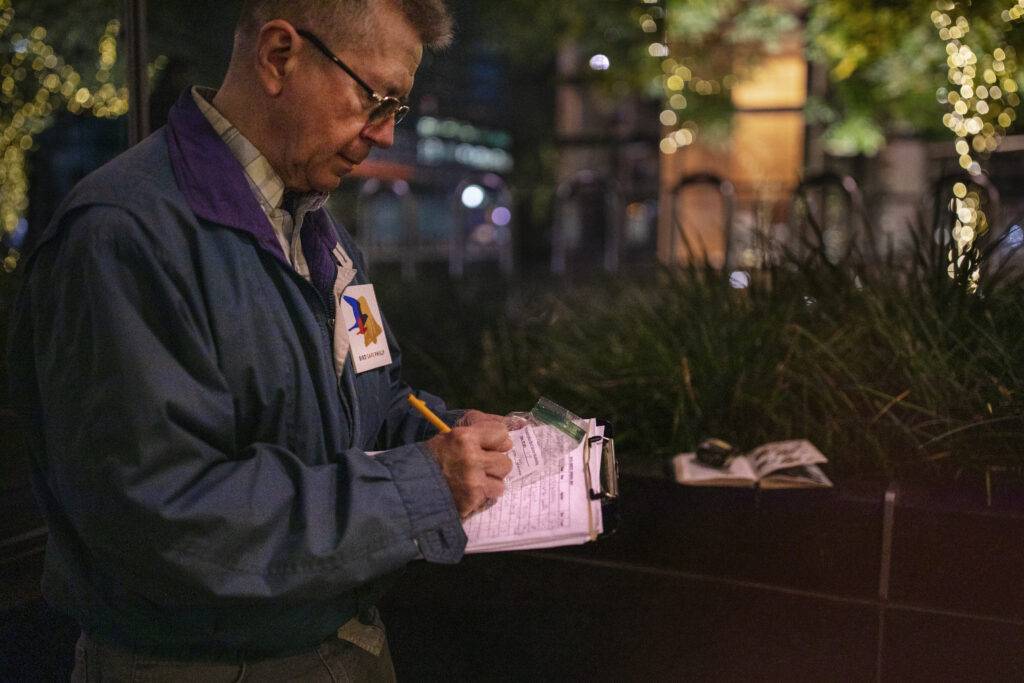
Birds can collide with a clean, clear window at any time of day, because they don’t realize that the glass is there. At night, lighting causes additional reflectivity and bird disorientation. Birds see themselves and what’s behind them reflected in windows, and they slam right into the glass, says Connie Sanchez, the National Audubon Society’s Program Manager for Bird-friendly Buildings.
“They’re going to think they can fly right into that habitat, not realizing that there’s glass there,” she says.
Lights Out is asking participants to turn off their buildings’ lights from midnight to 6 a.m. during the fall migration (August 15 through November 15); the spring session will be April 1 through May 31, 2024.
Audubon’s Keith Russell, Program Manager for Urban Conservation, is excited to see many prominent downtown Philadelphia skyscrapers pledging to participate, including the Comcast Center. He estimates that participants in at least 120 buildings have pledged to turn out their lights, which could reduce bird deaths by as much as eighty percent.
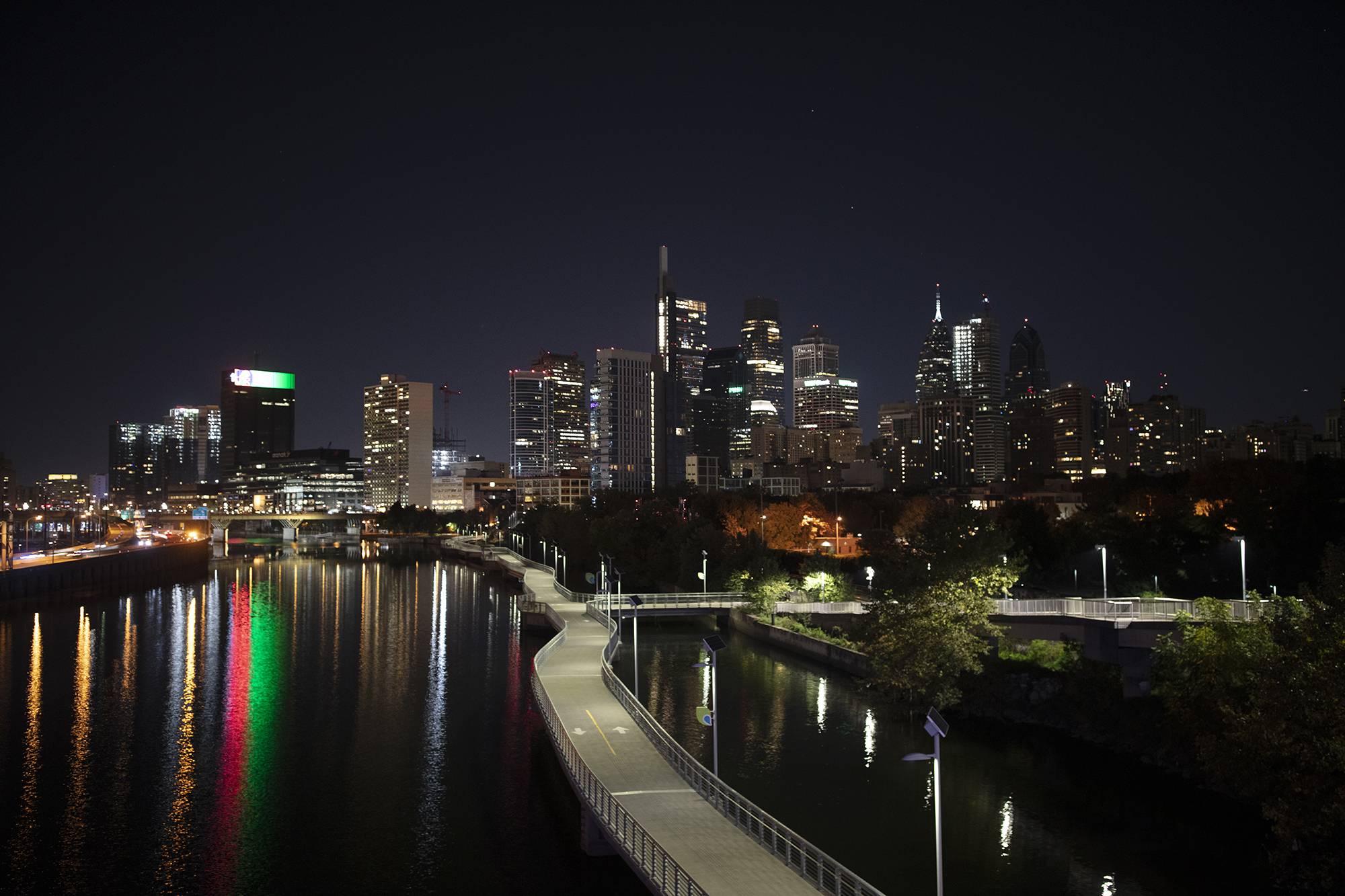
Local discussion about implementing a program like this began several years ago, after people reported seeing dead birds in the city’s downtown neighborhood. An Audubon volunteer phoned Russell early one morning in 2020, overwhelmed at the discovery of numerous dead birds, including sparrows, blue jays, robins, and warblers. Volunteers later collected hundreds of bird carcasses, and the media covered the story, triggering an outcry. Bird Safe Philly was created in 2021 to find a solution, Russell says.
Building owners listened to concerns, but it was difficult to convince them to commit to a lights-out program based on anecdotal information, Russell says. Audubon conducted three years of monitoring, and some buildings installed patterns or dots or stripes on their windows to alert birds and reduce collisions.
“When birds see these dense patterns,” Russel says, “they think there’s no way to get through [them].” (The patterns don’t obstruct the view for humans.) But window patterns were only a partial solution; Lights Out has taken bird safety efforts to a new level.
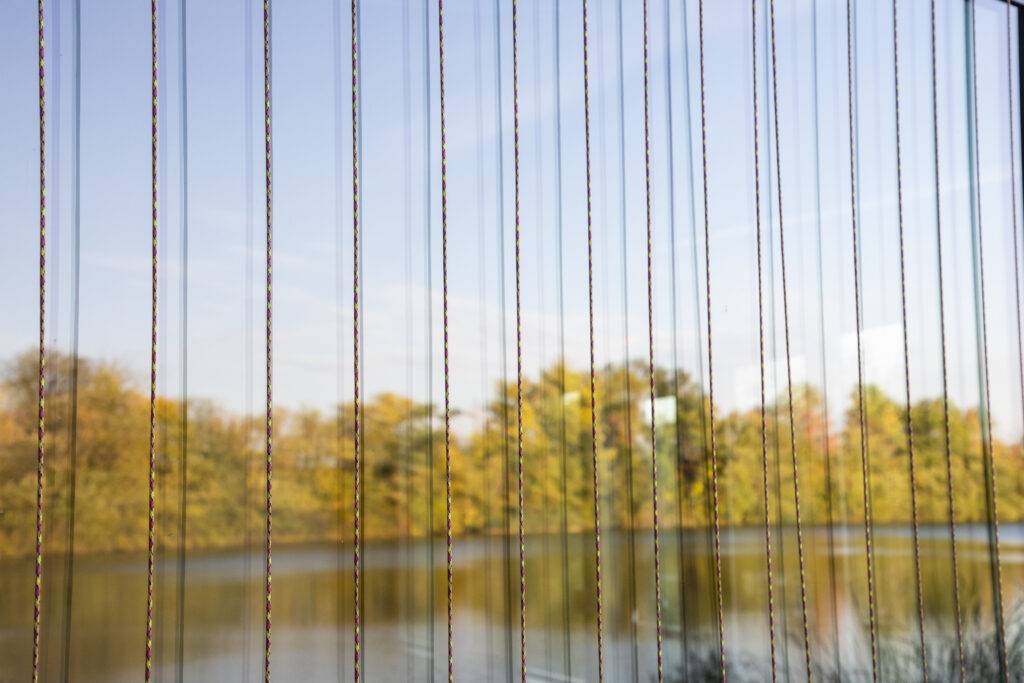
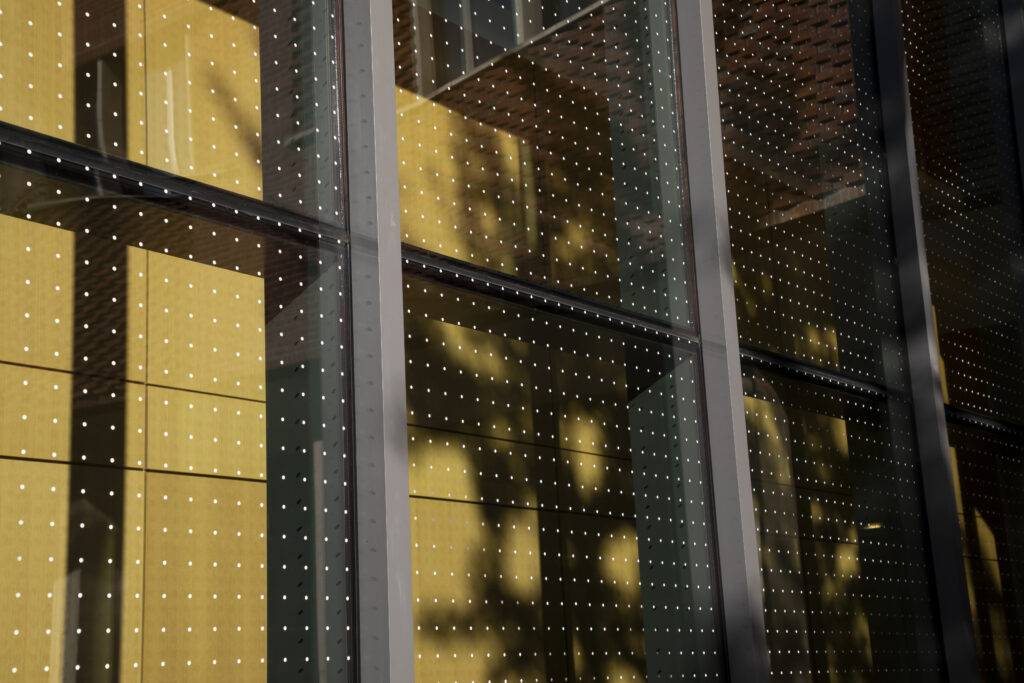
Bird window collisions can occur anywhere, Russell says. “Wherever you are, we do want people to participate. It really does carry a lot of weight when a major public or private building like a convention center or a Comcast tower participates. But the research tells us that over 90 percent of birds that die from collisions are [hitting] residential homes and low rises. It doesn’t matter about building height or size.”
Philadelphia’s not the only urban area with a Lights Out initiative. Several cities, including Toronto and Pittsburgh, have run similar programs. More importantly, private residents can practice Lights Out in their homes wherever they live — reducing their electricity costs while helping to save birds’ lives.
What You Can Do
• Put patterned stickers on your windows to break up the reflection and give the birds a visual cue that there’s a surface there. Companies like CollidEscape sell window sheets with dot patterns and tinting.
• You can also draw patterns on your windows using a bar of soap or window paint (repeat after a rainfall). Or hang ribbons or strings on the outside of your windows about four inches apart.
• Position feeders and birdbaths 1 ½ feet or less from windows. Birds won’t be able to create enough momentum to hurt themselves at the distance. What’s more, you can better see the birds at your feeders!
• Keep cats indoors.
• Turn out lights at night, including exterior decorative lights. “Basically, really, just reduce as much of your lighting as possible,” Sanchez says. It’s especially important to keep exterior lights off during migration seasons.
• If a bird hits your window, gently place it inside an unwaxed paper bag or cardboard box firmly secured, recommends FLAP (Fatal Light Awareness Program). Ensure the bird remains upright (“you can create a donut out of tissue for it to sit in,” reads FLAPS’ literature. Then place it in a quiet location away from people/pets. Contact a nearby wildlife rehabilitation center for further instructions.
• Report bird collisions to the Global Building Collision Mapper, a citizen science database.


